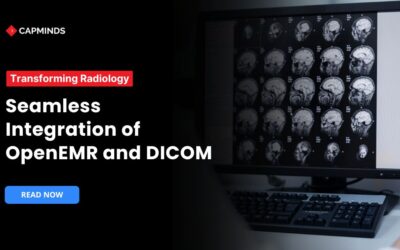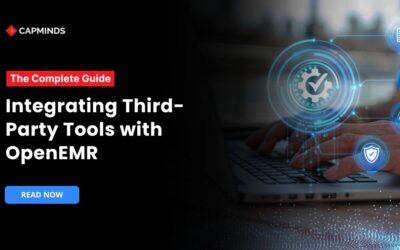10x Your Patient Outcomes: How OpenEMR Integration Revolutionizes Behavioral Health Data Sharing
In the healthcare practice, the exchange of patient information is pivotal to giving effective better care. Nowhere is this truly in the Behavioural healthcare practice where accurate case data is pivotal.
This is where the OpenEMR Integrated Solution comes by, transubstantiating the way of managing, swapping, and organizing behavioral health case data.
The Innovative Platform of OpenEMR Integration Engine offers a centralized platform for easing the exchange of behavioral health case information
This blog post will walk you through the transformative way in which OpenEMR Integration Engine behavioral health information exchange.
Understanding the Importance of OpenEMR for Behavioural Health Practice
Basic info: OpenEMR is an open-source platform and medical practice management software. In Simple terms, an OpenEMR is a digital version of traditional paperwork in healthcare.
That helps to manage all the patient information which includes the patient’s health history, medication, lab results, diagnosis, and clinical notes.
Why it is necessary for Behavioural Health? OpenEMR helps to address the unique needs and challenges associated with mental health.
Here are some key points That include the necessity of OpenEMR in Behavioural Health;
- Record Management: OpenEMR efficiently organizes the patient’s records, including treatment plans and progress notes.
- Customizable Mental Health Templates: OpenEMR allows healthcare providers to tailor the documentation for mental health assessment.
- Specialty Customization: Healthcare providers can customize the OpenEMR workflow page based on the unique needs of Mental Health Practice.
- Appointment Scheduling and Reminders: Behavioural Health Practice Often involves frequent appointments for therapy sessions. OpenEMR has appointment scheduling and reminders to manage the appointment schedules.
RELATED: How Integrations Made Easy With OpenEMR [Undiscovered Features + Benefits]
How OpenEMR Integration Helps Behavioural Health Information Exchange
Discover how OpenEMR Integration helps behavioral health information exchange. From centralized data management to streamlining reporting and analytics.
Centralized data management
- OpenEMR provides centralized storage for storing and managing behavioral health information.
- This centralized approach allows healthcare professionals to access up-to-date information related to behavioral health patients.
- Centralized Data Management ultimately led to more informed decision-making and better patient care.
Seamless Interoperability
- Interoperability allows the different systems and applications in healthcare practices to connect and communicate seamlessly.
- This ensures that behavioral health information is shared among the healthcare providers.
- Ultimately, this interoperability will enhance collaboration in the healthcare delivery process.
Information Exchange
- The OpenEMR integration engine efficiently exchanges behavioral health information between different healthcare practices.
- This not only improves the efficient workflow but also ensures that critical behavioral health information is available instantly whenever and wherever is necessary.
Improve Care Coordination
- The OpenEMR integration engine enables different healthcare staff to access behavioral health information.
- This ensures effective collaboration between different healthcare providers and provides a more personalized approach to better patient care.
Enhanced Date Accuracy
- The OpenEMR integration engine helps to maintain accurate data by minimizing the chances of errors.
- This data accuracy is crucial for behavioral health practice, where crucial information is essential for developing personalized treatment plans.
Patient Engagement
- The OpenEMR integration engine supports patient engagement by providing individuals with secure access to their behavioral health information.
- This transparency engages behavioral health patients to actively participate in healthcare.
Streamlined Reporting and Analytics
- By centralizing data, OpenEMR makes it easier for behavioral health professionals to create detailed reports and analytics by bringing all the data into one place.
- Ultimately, it helps to gain insights and consistently provides better quality care.
RELATED: Can large clinics use OpenEMR? [Top 8 challenges & shotgun solutions]
Challenges while implementing OpenEMR into Behavioral health practice
While there are many ways OpenEMR helps in behavioral health specialty, there are many challenges that healthcare providers have to navigate while implementing OpemEMR into Behavioral Health.
- Challenges while Customizing the OpenEMR for Mental Health Practice.
- Technical difficulties while adopting the technology.
- Workflow disruption while integrating the technology
- Training sessions and support system
- Interoperability for seamless medical information transmission.
- Requires huge investment costs for the implementation process.
And many more.
CapMinds: Reliable Partner for OpenEMR Implementation to Behavioral Health Practice
While there are many challenges to face while implementing OpenEMR in behavioral health practice, CapMinds ensures you navigate through the challenges for Seamless implementation of OpenEMR.
- We provide a cost-effective solution that benefits healthcare practice at all levels.
- Our technical team assist you in navigating through the technical difficulties.
- Without disrupting your regular workflow, CapMinds will effortlessly implement OpenEMR to Behavioral Health Practice.
- CapMinds provides exceptional training sessions to educate healthcare staff.
- We seamlessly transfer health data to different healthcare systems.
Our OpenEMR Implementation service facilities simple modern user-friendly interface, customization, support, training, billing and payment, e-prescribing, and more…
Reach out to CapMinds to Empower Better Quality Behavioral Health Patient Care. Click the link below and sign up.




